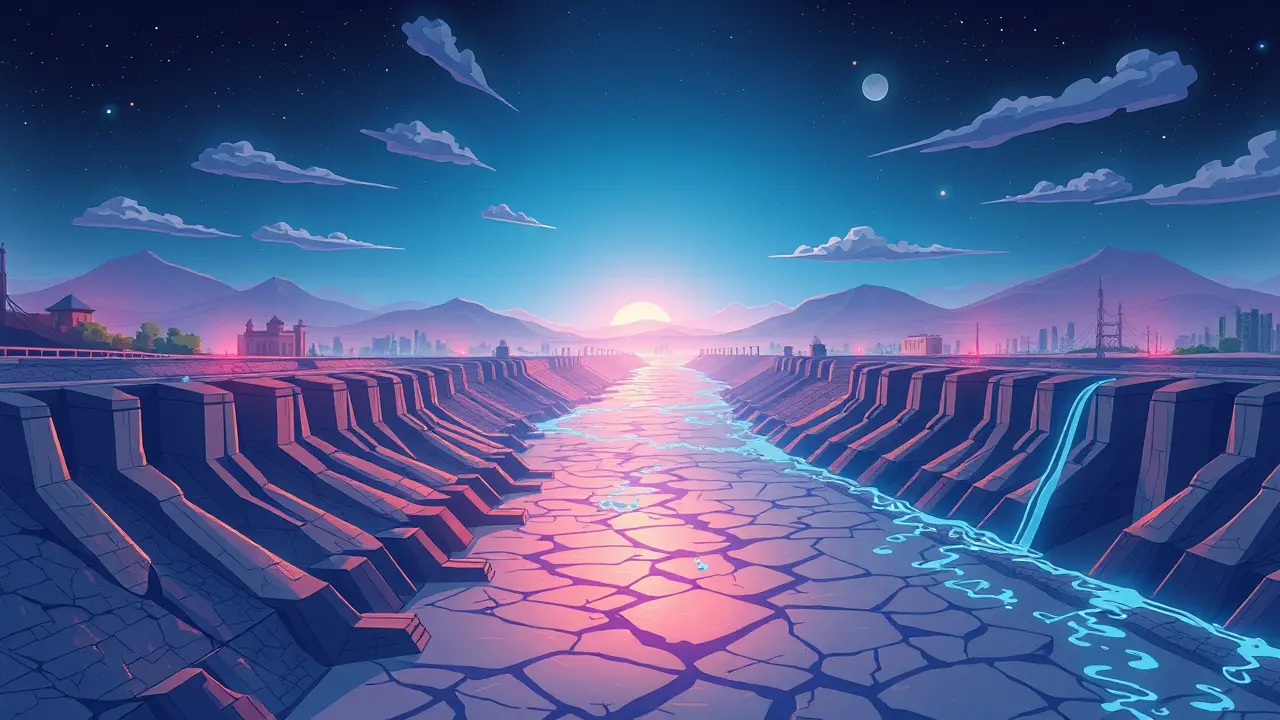
Otherweather & natural eventsHeatwaves and Droughts
Iran to cut Tehran water supply amid historic shortage.
RA
Rachel Adams
10 hours ago7 min read1 comments
The Iranian government's unprecedented move to implement nightly water supply cuts in Tehran marks a critical juncture in a crisis decades in the making, a slow-motion environmental catastrophe that has finally reached the boiling point. With reservoir levels at the capital's dams plummeting to historic lows—some reports suggest they are operating at a mere 30% of capacity—the specter of rationing is no longer a threat but a stark reality for over 13 million residents.This is not merely a seasonal drought; it is the culmination of profound mismanagement, a rapidly warming climate, and a water-intensive agricultural policy that has systematically bled the nation's aquifers dry. The Zayanderud River, once the pulsating heart of Isfahan, now often lies as a cracked, dusty scar through the city, a powerful visual testament to the systemic failure.Experts I've consulted, like those from the Iran Water Resources Management Company, point to a 40% drop in precipitation over the past year compared to the long-term average, but they are quick to emphasize that the rainfall deficit is only an accelerant on a fire fueled by unsustainable practices. For years, the heavy subsidization of water for farming water-thirsty crops like wheat and sugar beets has encouraged profligate use, while aging, leaky urban infrastructure loses an estimated 25% of treated water before it even reaches a tap.The geopolitical dimension is inescapable; international sanctions have crippled the nation's ability to import and implement advanced water-treatment and desalination technologies, leaving it isolated in the face of a hydrologic emergency. The human impact is already visceral: in southern provinces like Khuzestan, protests over water scarcity have erupted with tragic frequency, and in Tehran, the impending cuts will disproportionately affect the poor who lack the storage capacity or financial means to buffer the disruption.This is a crisis that mirrors others I've reported on, from the shrinking Aral Sea to the Cape Town 'Day Zero' scare, a recurring narrative of human ingenuity being outpaced by ecological limits. The nightly cuts are a desperate triage measure, but without a fundamental re-evaluation of water as a finite, strategic resource—including a shift toward drip irrigation, widespread infrastructure modernization, and perhaps even politically difficult water pricing reforms—Tehran's thirst will only deepen, turning a crisis of management into an existential threat to stability.
#featured
#Iran
#Tehran
#water shortage
#dam levels
#drought
#government action
#resource management
Stay Informed. Act Smarter.
Get weekly highlights, major headlines, and expert insights — then put your knowledge to work in our live prediction markets.
© 2025 Outpoll Service LTD. All rights reserved.